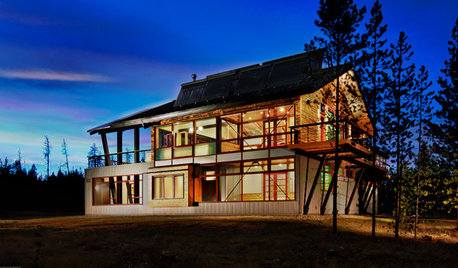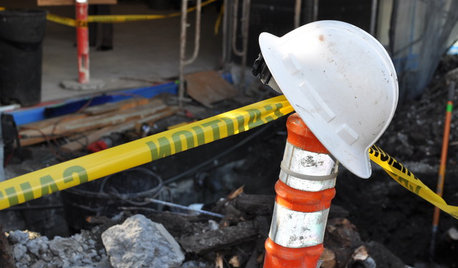I am pasting here an excerpt of the transcript of a Nov 16 speech by former CIA Director James Woolsey, completely unedited from what was passed along to me. His speech is about "World War IV." The excerpt is relevant to anything we ever decide to really do about droughts.
****************
So virtually all of our infrastructure has been put together with this sense of openness and ease of access and resilience - some resilience - against random failures. But random failures is not what we saw September 11th and a year ago, and I'm afraid not what we will see in the future.
About seven years ago, one of our communication satellites' computer chip failed. The satellite lost its altitude control and immediately 90 percent of the pagers in the country went down. The next day, they were back up again because somebody had figured out how to reroute them to a different satellite. That's the kind of thing we do all the time. That's not what happened a year ago September 11th. In the preparations for September 11th that were taking place sometime in the late 1990's or 2000, a group of very sharp and very evil men sat down and said to themselves, something like this. Let's see. The foolish Americans when they do baggage searches at airports ignore short knives like box cutters. And short knives can slit throats just as easily as long knives. Second, if you can believe it, they conduct themselves with respect to airplane hijackings as if all hijackings are going to go to Cuba and they're just going to have to sit on the ground for a few hours. So they tell their air crews and everyone to be very polite to hijackers. This is also good. And third, even though twice a year going back many years, there have been crazy people who get into the cockpits of their civilian airliners and people write in to the FAA and say, you ought to do something about this, they continue to have flimsy cockpit doors on their airliners. Let's see. Short knives, polite to hijackers, friendly cockpit doors. We can take over airliners, fly them into buildings, and kill thousands of them. That is not a random failure. That is a planned use of part of our infrastructure to kill Americans. It's going for the jugular, going for the weak point. Einstein used to say, "God may be sophisticated, but he's not plain mean." And what I think Einstein meant by that is, since for him nature and God were pretty much the same thing, if you're playing against nature and trying to say, discover a new principle of physics, it's a sophisticated problem. It's going to be very tough. But there's nobody over there trying to outwit you and make it harder. In war and terrorism, there is. There is someone who is trying to do that. And we have not given a single thought to how to manage our infrastructure for the possibility of an attack on our own soil, something we have not had to deal with for 200 years-- since 1814 when the British burned the White House.
We have just-in-time delivery to hold down operational costs until somebody puts a dirty bomb in one of the 50,000 containers that crosses U.S. borders every day and people decide they have to start inspecting virtually all of the containers at ports and all that just-in-time manufacturing is stopped after four or five days. Full hospitals. Great idea. Keep hospital costs down. Health care costs down. Move people through hospitals rapidly. All hospitals 99 percent occupancy, et cetera. Wonderful idea, until there's a bioterrorist attack and then thousands or hundreds or thousands or millions of Americans need some sort of special healthcare.
All of these networks have their weak points and many of them have incentives in them to -- not for this purpose of course -- but essentially to be vulnerable to terrorism. We are not only going to have to go through our infrastructure -- and this is what I'm spending a lot of my time working on now -- we are not only going to have to go through our infrastructure and find the functional equivalent of the flimsy cockpit doors and get them fixed. Then, we are also going to have to pull together and take a look at things like our electricity grids, our oil and gas pipelines, our container ports and the rest and figure out ways to change the incentives so that they build in resilience and do it in such a way that it's compatible with economic freedom in a market economy. We don't want some bureaucrat up there ordering people to do this and this and this. But, we have to get some resilience, some promotion of resilience into the incentives -- tax or otherwise -- for the way our infrastructure's managed.
















stimpy926
stitches216Original Author
Related Professionals
Middle River Landscape Architects & Landscape Designers · Beachwood Landscape Contractors · Broomfield Landscape Contractors · Chelmsford Landscape Contractors · Flagstaff Landscape Contractors · Laguna Hills Landscape Contractors · Morrisville Landscape Contractors · North Richland Hills Landscape Contractors · San Pedro Landscape Contractors · York Landscape Contractors · Lincolnwood Siding & Exteriors · Great Falls General Contractors · Melville General Contractors · Pico Rivera General Contractors · Wolf Trap General Contractorsstimpy926